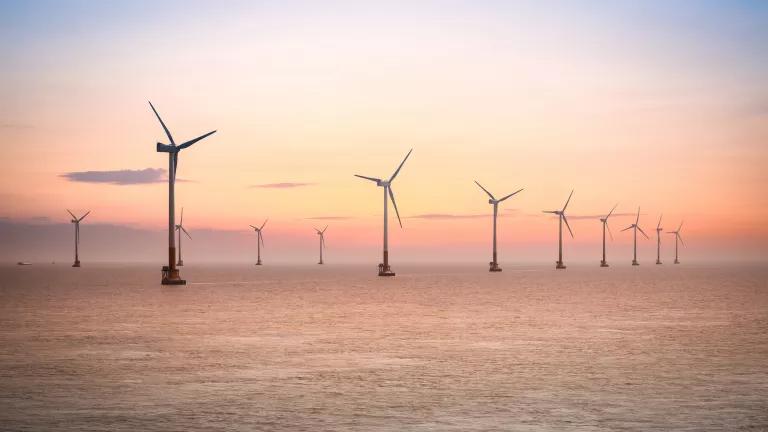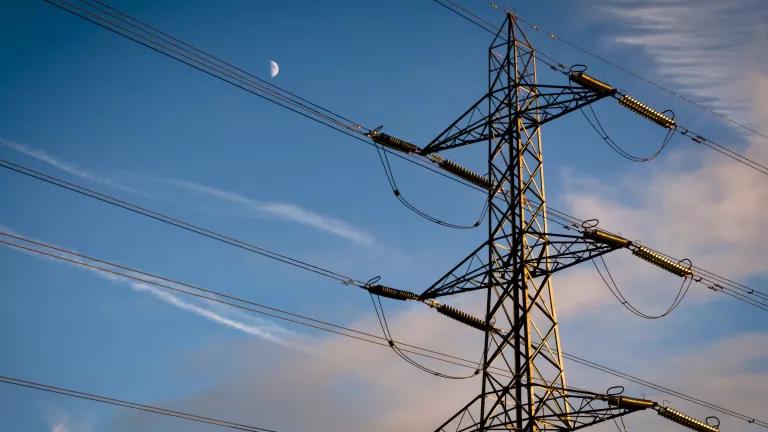Mexico Energy Law Goes Against North American Climate Action
The bill is a major setback for climate action and renewable energy investments in Mexico that will likely raise trade disputes under Mexico’s trade agreements with the U.S. and other nations.
Despite the strong ties that bind the three North American countries, Mexico is marching in the opposite direction from its neighbors—at least when it comes to climate ambition and clean energy. Recently, the US and Canada announced a High-Level Ministerial Dialogue on Climate Action to work together to enhance their NDCs, align policies to address emissions, and build resilience. Meanwhile, in Mexico, the Congress just approved a fast-tracked bill pushed by President Andrés Manuel López Obrador that modifies the country’s Electric Industry Law (LIE)—effectively rolling back the 2013 energy reform that helped spur the country’s early clean energy growth. The law is a major set-back for climate action and renewable energy investments in Mexico that will likely raise trade disputes under Mexico’s trade agreements with the U.S. and other nations.
The changes to the LIE would increase toxic air pollution and energy costs and make it impossible for Mexico to achieve its already modest emission reduction commitments under the Paris Agreement. The changes which are intended to benefit the Federal Electricity Commission (CFE), Mexico’s fossil fuel dependent state-owned electric utility, open the door to trade disputes under the new US-Mexico-Canada Trade Agreement (USMCA). The changes seek to:
- Modify dispatch rules to benefit power plants owned by CFE. Power produced by CFE plants (including thermal plants) would be fed into the power grid first, displacing lower cost renewable energy from private producers.
- Eliminate the obligation of CFE to purchase basic supply in auctions. Mexico’s long-term energy auctions were instrumental in the expansion of the renewable energy sector and renewable energy repeatedly set record low prices. Under the proposed changes CFE would no longer be required to purchase energy for basic supply via auctions. Instead, it would be able to buy from its own power plants, even if the energy generated was more expensive.
- Require the revision and potential termination of certain power purchase agreement. Existing power purchase agreements between CFE and independent power producers would be reviewed and could potentially be terminated or renegotiated.
- Revoke certain self-supply generation permits. Permits that were grandfathered in would be revoked if they are found inconsistent with the modified LIE.
This is the latest attempt by President Andrés Manuel López Obrador to boost the fossil fuel sector at the expense of renewable energy. Over the past two years the government has acted to hamper private renewable energy development. Among other things it has attempted to change clean energy certificates rules to disincentivize new renewable projects, delay the start of commercial operation of solar and wind projects, and slow the permitting process of renewable projects to a snail’s pace. The government has also pushed forward with the construction of the new Dos Bocas refinery by PEMEX, the state oil and gas company. President López Obrador’s view is that all this is necessary so that Mexico can strengthen the fossil fuel-dependent state-owned enterprises, CFE and PEMEX, in order to achieve “energy sovereignty” and advance national development goals.
In fact, the result would be dirtier, more expensive energy that would threaten the health of Mexican citizens, harm our global climate, and hurt businesses and workers struggling to recover from the economic impacts of COVID-19. Over the past several weeks the message from Mexican and international businesses, youth groups, environmental NGOs and national and international energy experts has been clear: the proposed changes to Mexico’s Electric Industry Law are a step backward for Mexico and the climate.
- Mexico’s National Chamber of the Manufacturing Industry (CANACINTRA) urged Congress to reject the measure, warning of the negative impact on businesses and consumers: “If the government continues to fight clean energies…we will end up giving users more [service] interruptions, poor quality services, high costs in their bills, and as a country we will be less productive."
- The Executive Council of Global Companies (CEEG) which represents 50 multinational firms in Mexico also flagged concerns that the law would reduce clean energy alternatives for global companies committed to carbon reductions and an energy transition.
- Youth groups and environmentalists raised the alarm of the dangerous impact on local human health and the global climate.
- The Global Wind Energy Council and Global Solar Council jointly cautioned that at least 17,000 wind and solar jobs are at risk and there could be ripple effects in the broader value chains that rely on low cost clean energy in Mexico.
The changes in Mexico’s electricity policies also appear to constitute a breach of the USMCA, which provides rights and remedies to foreign energy investments in Mexico, by undermining principles of fair market competition. Several stakeholders have noted that the policy changes against clean energy represent “indirect expropriations,” and red flags have been raised in the US and Canada. In mid-January, outgoing US officials sent a letter to their Mexican counter parts raising concerns about development in the energy sector stating, “we are obligated to insist that Mexico lives up to its USMCA obligations, in defense of our national interests, which include investments funded by the US taxpayer.” More recently, the US Chamber of Commerce called the electricity reform bill “deeply troubling,” noting it could lead to the reinstatement of an electric sector monopoly and would “directly contravene Mexico’s commitments under the [USMCA].” Concern is also rising in Canada where Trade Minister Mary Ng has been monitoring the progress of the proposed law changes.
Canada and the U.S. are aligning to prioritize climate in commercial relations, what about Mexico? In their first virtual bilateral meeting, President Biden and Prime Minister Trudeau discussed the possibility of targeting climate polluting trade rivals. Enforcing the USMCA to protect clean energy investments in Mexico may be the best way to position the North American trade bloc as a leader on clean energy and climate while at the same time sending a signal to other regions that the climate impacts of trade are of paramount importance.
In their first virtual bilateral meeting, President Biden and President López Obrador highlighted the importance of tackling climate change, but this will not be possible without a robust clean energy sector in Mexico. It isn’t too late for Mexico to change course and turn back towards a clean energy future in partnership with its North American neighbors. But the clock is ticking, with serious consequences for the Mexican people, workers, and companies if the reforms to the electric industry law stands.



